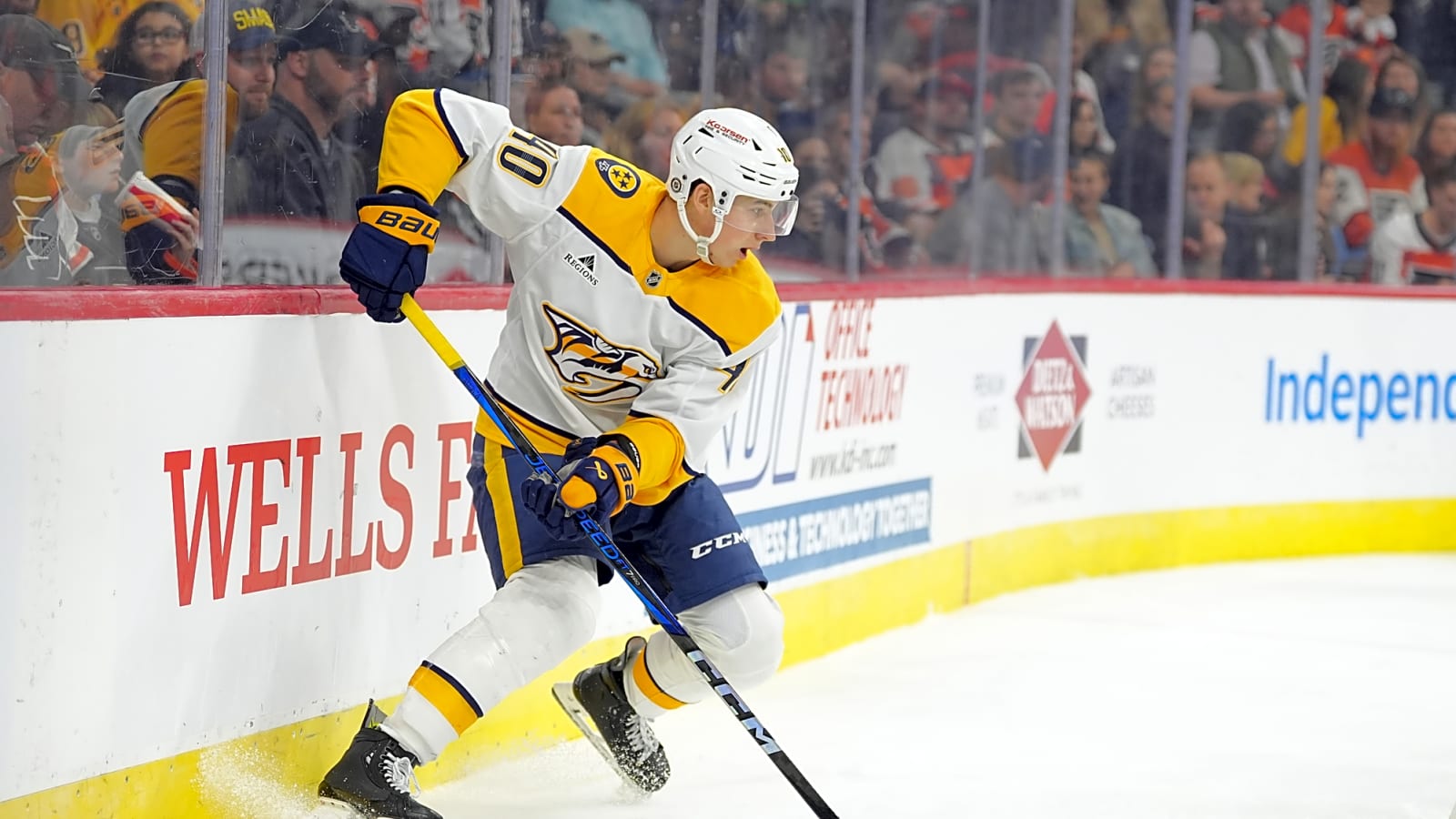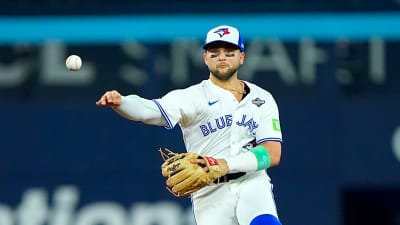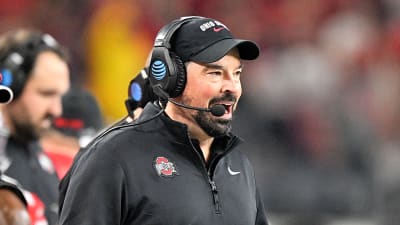
The Nashville Predators “won” last summer’s free agency period, signing Steven Stamkos, Jonathan Marchessault and Brady Skjei to lucrative long-term contracts. The summer victory was short-lived, however, as the Predators struggled to start the season and never regained their footing, ultimately falling to the bottom of the Western Conference standings.
The regular season exposed Nashville, revealing that it was a flawed team that was far from contending for the playoffs. Now, a year later, the Predators have taken a very conservative approach to their summer spending, and alas, they are still a flawed team that might struggle to score this season.
One of the most significant issues for Nashville, if not the biggest, is that its center depth is lacking, particularly in the scoring department. Stamkos is slated to be their top-line pivot, followed by Ryan O’Reilly.
While Stamkos is a first-ballot Hall-of-Famer and O’Reilly could sneak in, they weren’t exactly driving offense last year. Beyond the two of them, the scoring dries up further as the Predators’ options are currently Fedor Svechkov, who had an okay rookie season, as well as Erik Haula and Michael McCarron. No disrespect to Haula or McCarron, who are both decent defensive forwards, but they aren’t going to drive a line and won’t contribute much to Nashville’s offense.
Now, Nashville has a lot of young center depth in the pipeline, including the recently drafted Brady Martin, but those prospects are all a few years away and won’t help this upcoming season. The prospects will need playing time at some point soon, which has led some to speculate that the Predators might consider trading O’Reilly. However, general manager Barry Trotz remains pretty committed to the players he signed last summer and can’t exactly spring for a rebuild, yet.
The Predators’ murky center situation is a microcosm for the whole roster. As it is currently constructed, many of the players in the lineup will be playing outside of their ideal slot. Sure, Filip Forsberg, Roman Josi, Juuse Saros, O’Reilly, and Marchessault are all slotted fine. Still, Michael Bunting, for example, is currently in the top six and is probably best suited as a top-nine forward.
Speaking of Bunting, much of his season will hinge on how he starts. Last season in Pittsburgh, Bunting had an atrocious start to the season, with just a single assist in his first six games, before he was a healthy scratch. Bunting would play another 52 games in Pittsburgh, tallying 14 goals and 14 assists before he was traded to the Predators. Upon joining Nashville, Bunting played in 18 games to close out the season, registering five goals and four assists. The 29-year-old is a bit of a wild card in Nashville since he doesn’t do all that much away from the puck, but when he is on, he is a capable scorer who can post 20 goals and 50 points.
Much of Nashville’s hopes are like the hopes they have for Bunting. They are banking on internal improvement, perhaps better overall chemistry, and better luck. It’s not the worst strategy in the world, and probably a better course than blowing up the roster or trying to trade a pile of futures for short-term help.
The Predators had a pile of players experiencing down years. Stamkos, Marchessault, Bunting, Skjei, Josi and Saros all had off years, and if even half of them were to bounce back, we are looking at a very different Nashville team next season. However, there is no guarantee that they will bounce back; given the age of some of the players named, they may even regress further. However, Nashville is constrained by high-priced contracts and can only hope for some positive regression.
As far as team chemistry, the Predators would hardly be the first team to spend a significant amount of money in the summer only to have negative results. It’s happened in every major sport, including hockey, with perhaps the best example being the New York Rangers of the early 2000s, who repeatedly outspent every team in the league but couldn’t even get a sniff of the playoffs. The more the Rangers added at that time, the more the team’s chemistry became disjointed, which eventually led to a massive selloff towards the end of the 2004 season and ultimately a reset. The Predators have avoided adding much to their lineup this offseason; however, they have tinkered around the edges with the additions of defensemen Nicolas Hague and Nick Perbix.
Finally, as far as luck goes, Nashville didn’t have much of it last season, as evidenced by their PDO (shooting plus save percentages), which was dead last in the NHL at .970 (per MoneyPuck). Now, PDO alone doesn’t tell the whole story, but the top teams in the NHL typically have a PDO above 100, and the Predators were nowhere close to that. Much of that falls on the goaltender, Saros, who had the worst season of his career and will be looking to bounce back. If he can get back closer to his career average numbers, and the Predators’ offensive guys can get back to their career average shooting percentage, the Predators could make some moves in the Western Conference to try and climb back into the playoff conversation next season.
Photo by Kim Klement Neitzel-USA TODAY Sports
More must-reads:
- Four injury replacement options for Team USA at the Winter Olympics
- What is Auston Matthews' ceiling after becoming Maple Leafs' all-time goal leader?
- The 'Heisman Trophy winners since 2000' quiz
Breaking News
Trending News
Customize Your Newsletter
 +
+
Get the latest news and rumors, customized to your favorite sports and teams. Emailed daily. Always free!








